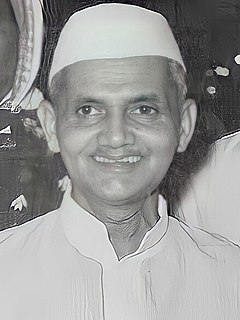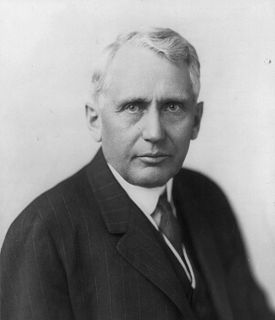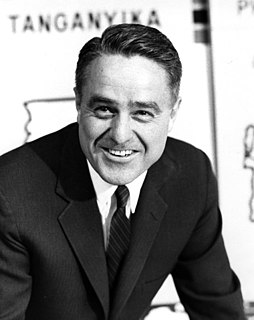A Quote by Lal Bahadur Shastri
We believe in peace in the settlement of all disputes through peaceful means, in the abolition of war, and, more particularly, nuclear war.
Quote Topics
Related Quotes
I know war as few other men now living know it, and nothing to me is more revolting. I have long advocated its complete abolition, as its very destructiveness on both friend and foe has rendered it useless as a means of settling international disputes... But once war is forced upon us, there is no other alternative than to apply every available means to bring it to a swift end.
In view of the fact that in any future world war nuclear weapons will certainly be employed, and that such weapons threaten the continued existence of mankind, we urge the governments of the world to realize, and to acknowledge publicly, that their purpose cannot be furthered by a world war, and we urge them, consequently, to find peaceful means for the settlement of all matters of dispute between them.
You have not been mistaken in supposing my views and feeling to be in favor of the abolition of war. Of my dispos[i]tion to maintain peace until its condition shall be made less tolerable than that of war itself, the world has had proofs, and more, perhaps, than it has approved. I hope it is practicable, by improving the mind and morals of society, to lessen the dispos[i]tion to war; but of its abolition I despair.
The cure is care. Caring for others is the practice of peace. Caring becomes as important as curing. Caring produces the cure, not the reverse. Caring about nuclear war and its victims is the beginning of a cure for our obsession with war. Peace does not comes through strength. Quite the opposite: Strength comes through peace. The practices of peace strengthen us for every vicissitude. . . . The task is immense!
We are in a war of a peculiar nature. It is not with an ordinary community, which is hostile or friendly as passion or as interest may veer about: not with a state which makes war through wantonness, and abandons it through lassitude. We are at war with a system, which by its essence, is inimical to all other governments, and which makes peace or war, as peace and war may best contribute to their subversion. It is with an armed doctrine that we are at war. It has, by its essence, a faction of opinion, and of interest, and of enthusiasm, in every country.





































